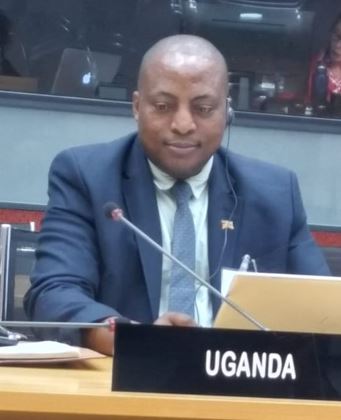
Bob Kazungu
Bob Kazungu
Ag. Assistant Commissioner for Forestry in charge of Assessment and Monitoring, Ministry of Water and Environment, Uganda, and Uganda's National REDD+ Focal Point - Ministry of Water and Environment, Uganda
Potential for Smallholder Planted Forests and Trees to Restore Degraded Mosaic Landscapes in Uganda
January 24, 2023 - 12:00 PM
The talk focuses on the current drive and campaign to restore degraded landscapes through planted forests following the high rate of deforestation in Uganda, country of with a deforestation rate of approximately 2% per annum and makes clear the approaches employed in Uganda to restore degraded landscapes through a combination of private sector led, individuals and community farmer group led efforts. Bon defines what small holder means in the context of planted trees in Uganda and discusses the species of trees planted and why they are preferred for restoration in Uganda.
The talk features a discussion of the policy enabling environment to support small holder tree planting and growing, including short medium and long term plans that incorporate tree planting and growing. In the discussions of the enabling environment, an analysis of the opportunities and strengths in Uganda to foster small holder planting of forests and trees is attempted.
Bon speaks to the gender dimension and evidences of livelihoods enhancement with the efforts to restore the mosaic of landscapes, and discusses the potential for ecosystem and community resilience to climate change effects in Uganda.
Speaker Biography
Bob is an Ag. Assistant Commissioner for Forestry in charge of Assessment and Monitoring at the Ministry of Water and Environment of Uganda, and also the Uganda’s National REDD+ Focal Point. Bob holds a Master of Science degree in Forestry with over 20 years of forestry management. In addition to Bob’s key function of ensuring that all forestry efforts are compiled and reported to different structures, Bob is key in policy and forestry law formulation in Uganda as well as preparation of standards and guidelines.